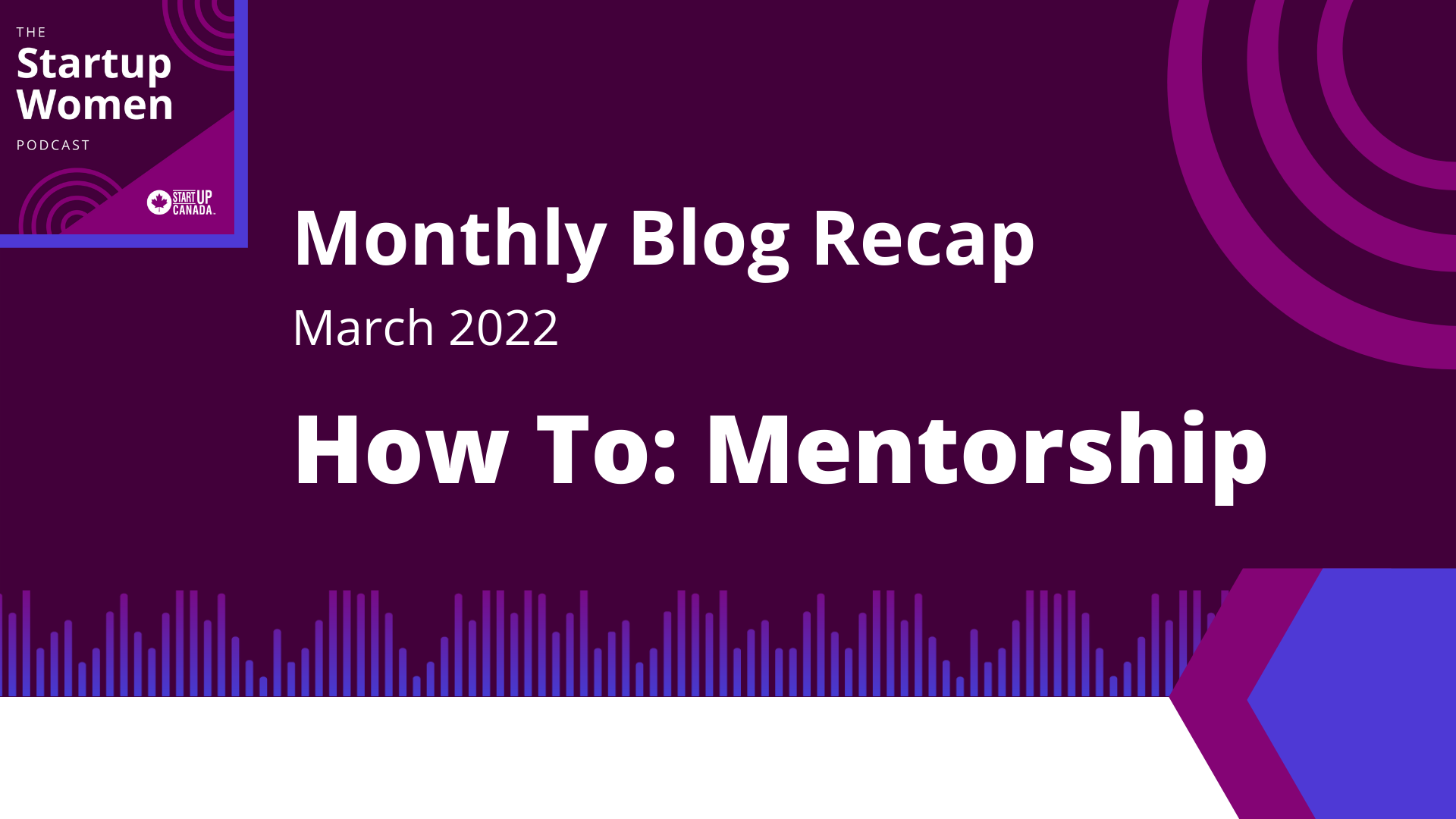“I really do believe that mentorship is practicing community as a verb, and is so deeply transformative.” Paulina Cameron, The Forum
Mentorship is about relationships that are built on trust, active listening, guidance, and the offering of knowledge and support. A mentor and mentee relationship for entrepreneurs can be the stepping stone into new levels of confidence and growth, a relationship and experience that can propel founders to new heights, give them the strength to overcome challenges, and reach the goals they have always wanted for themselves and their business.
In March, our Startup Women Podcast host Kayla Isabelle sat down with two incredible women, Karen Danudjaja (Founder of Blume) and Paulina Cameron (Founder of The Forum).Together, we arrived at a meaningful moment of Karen’s entrepreneurial journey and dug deep into the fruits that mentorship gave to her.
“Through mentorship, I was able to understand that the experience I was having was okay to have, it didn’t mean that I wasn’t a good entrepreneur, it didn’t mean that my business wouldn’t be successful, it just meant that I was human and I was doing something for the first time that was scary.”
– Karen Danudjaja, Blume
Mentorship is a human experience. We are dealing with humans, emotions, and unique experiences from one relationship to the next. This makes mentorship beautiful and impactful but it can also make it complex.
So, what exactly is mentorship? And what isn’t mentorship?
Paulina Cameron: The role of a mentor is one of support and offering their experience. It is one of sharing their learnings and asking thoughtful questions. It is one of holding brave space, and offering considerations and of expanding possibilities. Ultimately, and most importantly, mentorship is about showing up with the best interest of the entrepreneur in mind. I believe that the role of a mentor is not to instruct, perhaps not even actually to guide, and it is not to assume that their answers or way should be or is the right one for the entrepreneur.It is the mentor’s role to not bring their ego to the table or to dictate which way is right or wrong, and also not expecting their advice to be applied unequivocally.
What is meeting with a mentor really like? What is important to do, and not do?
Karen Danudjaja (Blume): Going into a new mentor relationship, I think you should be thinking about what you need out of it, be clear and communicate that to your mentor. I think being honest with yourself about what you need support with, and being honest with your mentor, is the first place to start.
I don’t go to my mentor asking how to solve something, or asking for a specific answer—I think there can be a real danger with that. Because even though you have a long-term relationship with them, they don’t know your business like you do. You still have to come with confidence in yourself and with the knowledge of your own business. It is important to be genuine about what you need and not expect your mentor to have every answer for you.
What impact can mentorship have on women entrepreneurs and Canada’s ecosystem of women in business?
Paulina Cameron (The Forum): In the space of supporting women entrepreneurs, I think we often hear the stats about what is needed to support them, we hear the stats around how little funding goes to women entrepreneurs. And while yes, that is a systemic and deeply frustrating reality, the other barrier, or a historical challenge that I have seen and that has persisted, is access to the right people, the right networks, the people who hold power and decision making, as well as the relevant experience. And it’s access to those networks, those individuals that can be just as powerful, and sometimes even more transformative to a business as capital can be. The trope of the old boys club extends in many contexts, and sometimes access to the individual who’s going to make a difference for your business can be part of that. I think a lot of women have also been, perhaps in the narrative that, you know, women don’t talk about money. And if we don’t talk about it, if we don’t talk about these things, then how are you going to be able to navigate it? Mentorship and a community that shows up for you, in my opinion, is the antidote to capitalistic patriarchal power structures. And I’ve seen that once women find their people, not only do they effectively work through the opportunities and challenges for the business, you know, those tactical ones, like what should my next marketing plan be? Or how do I get into the procurement division within this business? But as Karen said, they also feel confident, they feel seen, they feel understood.
Want to continue learning from Karen’s story and experience, and Paulina’s expertise? Listen to the full episode to continue hearing why mentorship is so important for women entrepreneurs.
Resources from this Episode:
- The Forum: Mentor Program
- Startup Canada: Startup Women Advisory Program
- RevolutionHer: Mentorship Program
- Mentorly: Educational Blog
- Heidrick & Struggles: Creating a culture of mentorship report
- Harvard Business Review: Mentor People Who Aren’t Like You article
